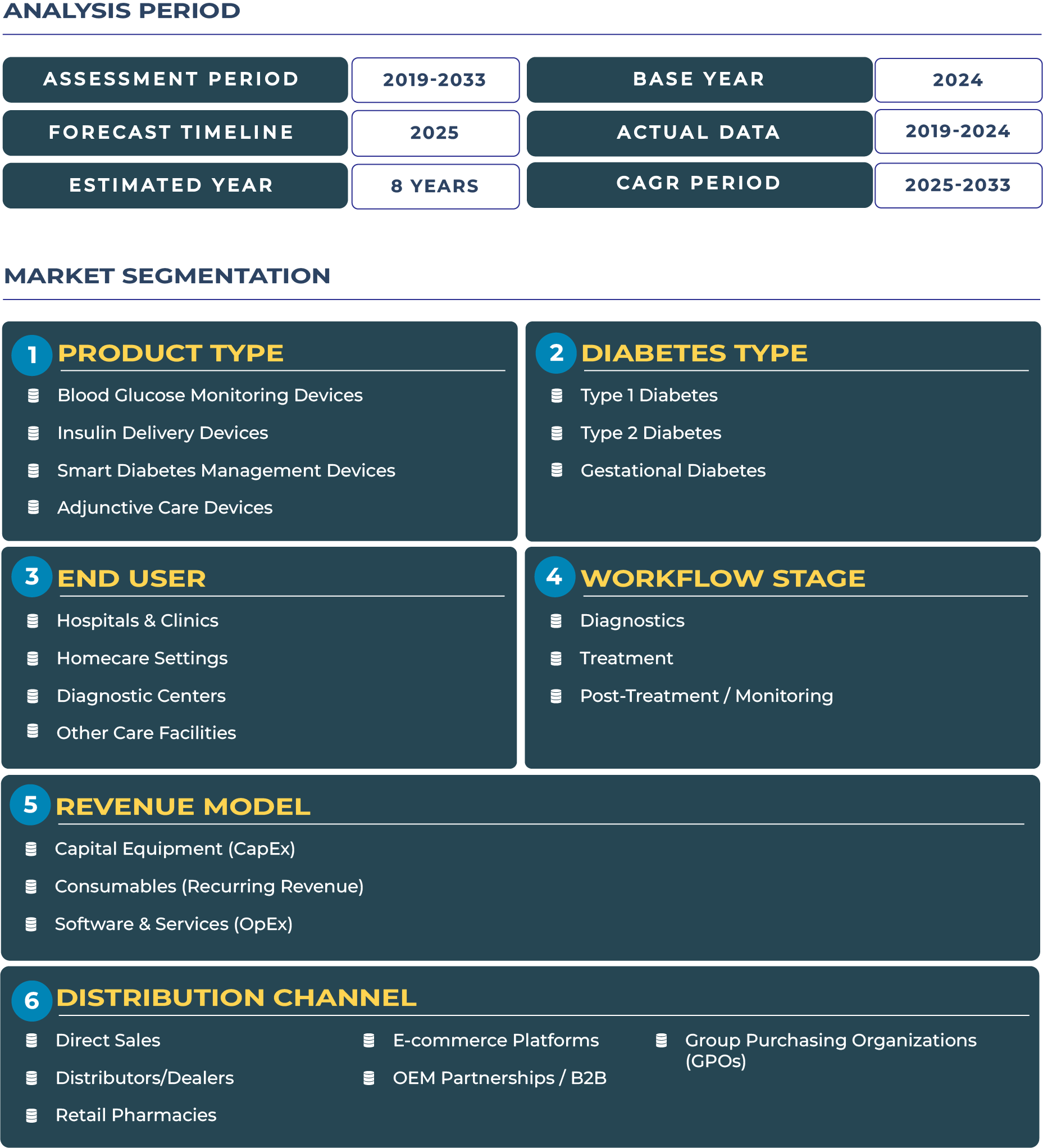UAE Diabetes Care Devices Market Outlook: Strong Regional Hub Dynamics Driving Diabetes Care Devices Adoption
The United Arab Emirates (UAE) has emerged as a prominent destination for premium healthcare services, where diabetes management is one of the critical areas of investment. With the country’s unique positioning as a medical tourism hub, the diabetes care devices market is rapidly evolving to cater not only to domestic patients but also to regional and international visitors seeking advanced solutions. Private hospitals, supported by specialist clinics and referral networks, have become the leading channels for the adoption of advanced diabetes management solutions, particularly continuous glucose monitoring (CGM) and insulin delivery devices. The emphasis on visibility through pilot programs and partnerships with key opinion leaders (KOLs) is further consolidating the UAE’s role as a showcase market for global players testing premium offerings before scaling across the GCC and South Asia.
The UAE diabetes care devices industry is set to demonstrate stable growth, with the market projected to increase from USD 100.7 million in 2025 to USD 135.5 million by 2033, representing a CAGR of 3.8%. This performance reflects a balance between premium adoption and strong competition. Dubai and Abu Dhabi are spearheading the market, driven by hospital-based centers of excellence in endocrinology and multi-specialty private hospital chains that cater to both citizens and expatriates. The influx of patients through medical tourism programs has positioned the UAE as an attractive environment for global manufacturers to pilot new technologies in smart diabetes management devices, including connected insulin pumps and app-enabled glucose meters. The growth trajectory is supported by rising lifestyle-related diabetes prevalence, alongside national strategies that encourage digital health integration. Despite regional geopolitical complexities, the UAE’s stable political and financial environment continues to provide a resilient platform for market expansion.
Drivers & Restraints: Understanding Key Enablers and Challenges in the UAE Diabetes Care Devices Landscape
High-Value Drivers: Medical Tourism and Advanced Hospital Infrastructure as Catalysts
The UAE’s reputation as a medical tourism hub has significantly accelerated the adoption of advanced diabetes care devices. Hospitals in Dubai Healthcare City and Abu Dhabi’s specialized centers have become attractive destinations for international patients, often demanding premium solutions such as CGM devices paired with insulin pumps for more efficient management. Additionally, the strong presence of private hospital networks, such as UAE Ministry of Health and Prevention accredited institutions, allows rapid introduction of high-tech devices through physician-led recommendations. These factors, combined with favorable reimbursement in selective private packages, have created a fertile ground for companies to launch pilot programs targeting affluent patients and expatriates.
Restraints Hindering Growth: Competitive Pricing Pressure and Limited Domestic Scale
Despite these advantages, the diabetes care devices sector in the UAE faces constraints. The domestic patient base, although experiencing high diabetes prevalence, is smaller compared to neighboring populous markets. This limits volume-driven growth and forces companies to focus on premium niches rather than mass adoption. Furthermore, competitive pricing pressure from multiple international brands often complicates product positioning, especially for mid-tier devices. Regulatory requirements for device import approvals and the cost of navigating compliance add complexity to market entry. While the UAE is relatively better positioned than other Gulf countries in terms of transparency, the competition and scale limitations remain key challenges to sustaining high growth.
Trends & Opportunities: Shaping the Next Phase of UAE Diabetes Care Devices Industry
Regional Distribution and Pilot Launches Strengthening UAE’s Global Role
The UAE has positioned itself as the preferred pilot market for smart diabetes management solutions. Dubai’s role as a logistics and commercial hub ensures rapid distribution across the wider GCC, North Africa, and South Asia, with companies leveraging the UAE’s infrastructure to test both consumer-oriented and hospital-based launches. The country’s visibility in global health conferences and pilot showcase programs enables manufacturers to validate return on investment before scaling internationally. This positioning as a test bed creates a cycle where innovation pipelines continuously bring advanced solutions to UAE hospitals and retail channels first.
Premium Digital Health and Direct-to-Consumer Pilots as Emerging Opportunities
A key opportunity lies in the introduction of premium digital diabetes platforms that combine device connectivity with lifestyle management tools. Direct-to-consumer (DTC) pilots are emerging in Dubai and Abu Dhabi, targeting tech-savvy expatriates who prefer bundled offerings that integrate CGM sensors with mobile applications. Companies are increasingly partnering with insurers and telehealth platforms to deliver these solutions, aiming to capitalize on the willingness of patients to invest in premium care. The ecosystem is shifting towards data-driven decision-making, making the UAE an attractive ground for connected health pilots that can later be replicated across GCC markets.
Competitive Landscape: Leveraging UAE’s Hub Position for Strategic Expansion
The diabetes care devices ecosystem in the UAE is characterized by strong competition between established multinational corporations and local healthcare distributors. Companies such as Medtronic, Roche, and Abbott are actively expanding their product lines, often focusing on insulin pumps, CGMs, and integrated platforms. A notable example is Medtronic’s 2023 expansion of its MiniMed insulin pump and CGM availability in UAE private hospitals, strategically aligned with the medical tourism sector. Local distributors, meanwhile, play a crucial role in ensuring accessibility, leveraging private hospital partnerships to introduce devices in premium care bundles. The competition is increasingly centered on the ability to pilot solutions that demonstrate outcomes, secure endorsement from leading physicians, and capture expatriate DTC markets. By leveraging the UAE’s role as a regional pilot hub, companies are ensuring long-term visibility and adoption within the diabetes care devices landscape.







